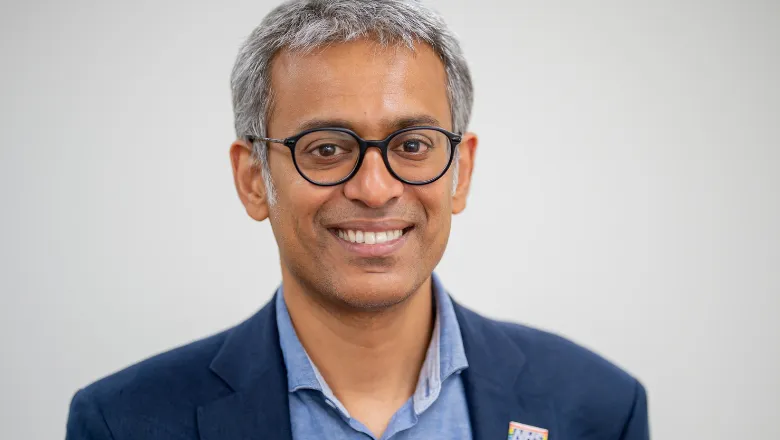My research aims to find ways we can improve outcomes for sepsis patients. This Fellowship allows me to interact with international leaders in sepsis research and learn from their work. It’s also a global recognition of my research into sepsis and will help me explore different approaches to reduce the burden of sepsis. My hope is that this will help my research to lead to benefits for patients.
Dr Manu Shankar-Hari
28 February 2019
Manu Shankar-Hari receives international honour
Dr Manu Shankar-Hari, Reader and Consultant in Intensive Care Medicine from the Peter Gorer Department of Immunobiology, has received the Lowry Fink Fellowship from the International Sepsis Forum in recognition of his work in sepsis.

The Lowry Fink Fellowship is awarded to one scientist worldwide each year for their research in this area.
Dr Shankar-Hari is also a Critical Care Physician at Guy’s and St Thomas’ NHS Foundation Trust.
Sepsis is a serious complication of infection. It occurs when the body’s immune system goes into overdrive in response to an infection. Without quick treatment, it can lead to multiple organ failure and death.
Although various medications have been tested in clinical trials, there is still no cure for sepsis. Dr Shankar-Hari’s research explores ways to improve acute and longer-term outcomes in critically ill adult sepsis patients.
Dr Shankar-Hari was awarded a prestigious National Institute for Health Research Clinician Scientist Award in 2016 for studying how to treat the longer-term risk of infection and risk of death in sepsis survivors. He is undertaking a clinical trial (VACIRiSS trial) funded by this award to test the effect of vaccines to reduce the longer-term complications of sepsis.
The International Sepsis Forum (ISF) is a collaborative effort between industry and academia that focuses solely on the management of patients with sepsis.
The Lowry-Fink Fellowship is named after Stephen Lowry and Mitchell Fink to recognise their contributions to advancing the science of sepsis. Fellows gain from interaction with the council and working on activities with the International Sepsis Forum that will help further develop their international profile.
